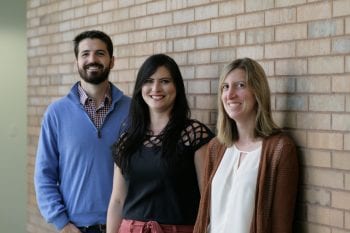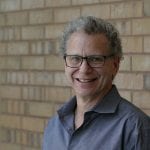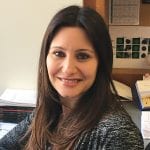The laboratory of Dr. Joshua B. Rubin is looking for two highly motivated and well-trained individuals to work as postdoctoral fellows on newly NIH-funded projects.
A background in cell biology, cancer biology, developmental biology, or cancer genetics is preferred for either position. A minimum of a 3-year commitment is required for both projects.
The central hypothesis of the first project is that sex-specific chromatin structure, enhancer usage, and gene expression, are established in utero during normal sexual differentiation and constrain cells to sex-specific responses to oncogenic stresses and chemotherapy-induced DNA damage. We will make use of our Cas-9 adaptation of the established four-core genotypes (FCG) model for measuring the distinct contributions of sex chromosome complement and gonadal secretions to sex differences in biology. Coupled with in utero electroporation of gRNAs and other genetic tools, we will assess how sex-specific changes in chromatin structure and coupled expression of specific genes mediate sex differences in GBM. Success in these studies, will advance our knowledge about normal sexual differentiation and how it contributes to sex differences in disease risk and response to treatment.
The central hypothesis of the second project is that sex differences in cellular senescence present an opportunity to develop novel, sex-specific approaches to GBM treatment. Based on our published and preliminary studies, we further hypothesize that sex differences in senescence induction and maintenance after radiation- or chemotherapy -induced DNA damage arise through sex-specific epigenetic mechanisms and regulation of p21 expression, phosphorylation, and subcellular localization. Cellular senescence plays a role in cancer as well as a number of neuro-inflammatory and neuro-degenerative diseases with sex differences in their incidence and severity. Thus, success in the proposed research will have an impact on GBM, other cancers, as well these neurological diseases.
We are always looking for passionate and motivated students. Email rubin_j@wustl.edu to ask about rotating in the Rubin Lab.
Josh Rubin on Mentoring
I believe that my job as a mentor is to provide opportunities for trainees to develop each of the skills they will require for success in science through practical experience. These skills include critical thinking about the literature, experimental approaches and data interpretation. They include written and oral presentation of their work. They also include being able to balance advocating for yourself while also being a strong collaborator, and being a mentor, which in the lab includes teaching others, directing undergraduate research projects, and providing constructive feedback on all aspects of being a scientist to everyone, including me, in the lab. I do this continuously through one-on-one meetings every week as well as small working group meetings, lab meetings and an openness to meeting at almost any other time anyone wants to talk about data or ideas. The lab has a strong tradition of regular meetings around grant preparation, discussion of hypotheses, experimental approaches and preparation of preliminary data. These studies are always done in a lab-wide collaborative fashion. Other lab activities that I believe have been important in training are our annual lab retreats in which we discuss topics that range from day-to-day issues to big picture discussions of careers and purpose.
Over the past 15 years I have trained ten post-doctoral fellows; four of which have gone on to independent academic positions at the Washington University School of Medicine (2), Memorial Sloan Kettering Cancer Center (1) and Cedars Sinai Medical Center (1); one of which will be transitioning to an independent academic position this year; two of which are now staff scientists. The other three went on to career positions at The American Association for Cancer Research, the Food and Drug Agency, and science policy advisement. We have had four graduate students complete their training in the lab. One went on to a prestigious post-doctoral fellowship with Dr. Max Wicha at the University of Michigan. One went on to a residency in Pathology at the University of California, San Francisco, one is currently in a residency program in Psychiatry, and the last is now back in medical school. We currently have two PhD students and one MD/PhD student performing their thesis work in the lab. We have also had over 20 rotating graduate students in the lab and approximately 20 undergraduates in the lab over the past 15 years. Almost all of the undergraduates have gone on to medical school or graduate school. Our trainees have received multiple grants and awards for their research in the lab.
Perspective from Post-Doctoral Fellow
Josh’s influence and mentoring have been astoundingly helpful in my professional and personal development. He has all of the qualities that make up an outstanding and phenomenal mentor. Josh’s availability, responsiveness, and skill have been crucial to my introduction into the field of cancer biology. He devotes time and energy to our mentorship relationship and to making sure that I reach my own career goals. He consistently demonstrates all the best traits of a mentor and adviser, challenging me to think and to learn, listening and giving thoughtful responses to my concerns, and preparing me for advanced stages of becoming a junior PI and beyond. Always enthusiastic about new ideas and research, his energy is infectious. His vision has been to establish a laboratory environment that fosters creativity, independent thought and scientific discourse; it is a culture that is both supportive and critical. He demands excellence from his lab members at all times. He is one of those rare researchers who is fantastically successful in his own right, and yet is completely and unselfishly dedicated to the success and well-being of his trainees. I feel so fortunate to have the opportunity to benefit from his exceptional mentoring.
Perspectives from Graduate Students
 Lauren: As a graduate student, I have found Josh to be a highly involved and caring mentor. At every point, he challenges me to think critically and develop my own scientific ideas and experiments, while still offering important guidance and advice. Josh is committed to providing individual mentoring time for each student; he meets weekly with all members of his lab on a one-on-one basis to discuss current progress, review data, and plan upcoming experiments. In addition, he is constantly in and out of the lab, checking in to see how things are progressing, talk science, or just chat about life in general. I have also appreciated Josh’s approach to scientific career preparation. There are three main areas that he has focused on fostering in this regard: scientific presentation skills, grant writing, and mentoring experience. The Rubin lab actively encourages its members to practice presentations and receive feedback from the lab before presenting in a group forum. These practice sessions have given me a lot of insight into how best to structure talks and present data clearly. Josh also takes an active approach to teaching grant writing; he periodically holds small meetings with the graduate students in his lab, where we discuss key criteria of the grant review process and critique each other’s writing. Finally, as a member of the Rubin lab I have had multiple opportunities to act as a mentor to both undergraduate students and rotation students, which I believe is important experience for my future career.
Lauren: As a graduate student, I have found Josh to be a highly involved and caring mentor. At every point, he challenges me to think critically and develop my own scientific ideas and experiments, while still offering important guidance and advice. Josh is committed to providing individual mentoring time for each student; he meets weekly with all members of his lab on a one-on-one basis to discuss current progress, review data, and plan upcoming experiments. In addition, he is constantly in and out of the lab, checking in to see how things are progressing, talk science, or just chat about life in general. I have also appreciated Josh’s approach to scientific career preparation. There are three main areas that he has focused on fostering in this regard: scientific presentation skills, grant writing, and mentoring experience. The Rubin lab actively encourages its members to practice presentations and receive feedback from the lab before presenting in a group forum. These practice sessions have given me a lot of insight into how best to structure talks and present data clearly. Josh also takes an active approach to teaching grant writing; he periodically holds small meetings with the graduate students in his lab, where we discuss key criteria of the grant review process and critique each other’s writing. Finally, as a member of the Rubin lab I have had multiple opportunities to act as a mentor to both undergraduate students and rotation students, which I believe is important experience for my future career.
Perspectives from Rotation Students
Joe Lagas: I am a PhD student in the Molecular Cell Biology program here at WashU. I chose the Rubin lab as my first rotation, and there are a few things that I think make this lab unique. The Rubin lab does its best to ensure a positive, social, and collaborative lab environment. Outside lab, I took part in several social activities such as the Rubin lab retreat at a café and bowling alley, and culture night where we all watched West Side Story. Not only is everyone here very close but all of its members work together to solve problems. For instance, if I ever ran into a snag in my project, I was not only encouraged to talk to Dr. Rubin but also to the rest of the lab. Every member of the lab is friendly and had no problem dealing with my repetitive questions as I found my way around. Once I hit my stride, they were also more than willing to help out whenever I ran into a problem. This includes when I had a presentation; several members of the lab wanted to help me practice until I got it just right. Of course, the PI is also an integral part of the lab as well. Dr. Rubin is always willing to help out and takes a special interest in every person who decides to come through the lab. He genuinely cared about my experience in the lab, was willing to take criticism, and wanted me to learn as much as I could from this rotation. His door was always open for questions and he would drop into the lab often just to see how everyone was doing. The rotation project Dr. Rubin and I worked out was a unique one for me as well, as it required a lot of research and initiative on my part. This helped to expand my horizons as I had never done much experimental design before this point in my undergraduate studies. This lab pushed me to be better and did a great job of making it an extremely enjoyable experience!
Contact
Josh Rubin
rubin_j@wustl.edu
Lab Number: 314-286-2913
Office Number: 314-286-2790

